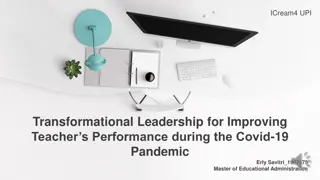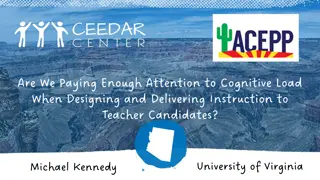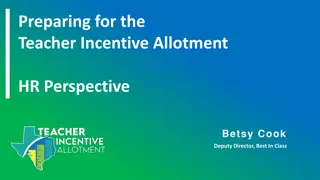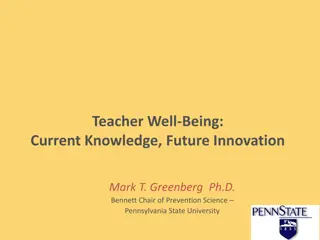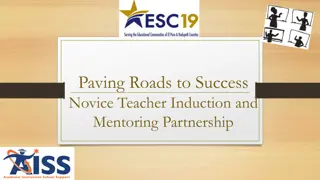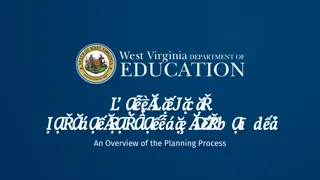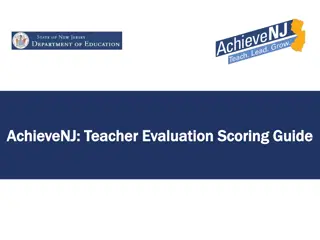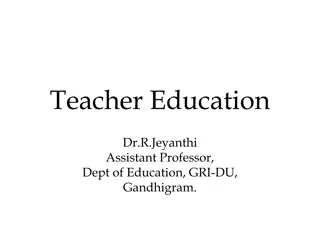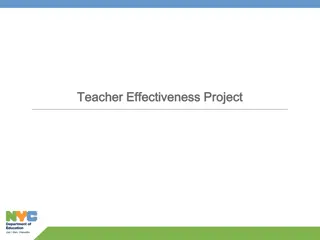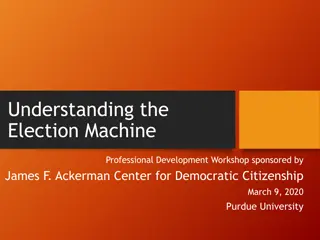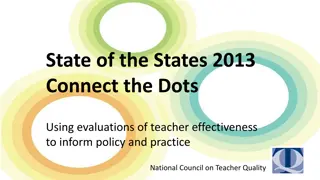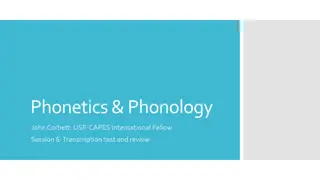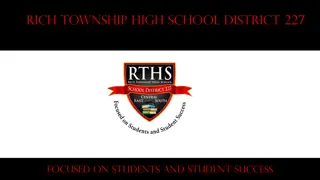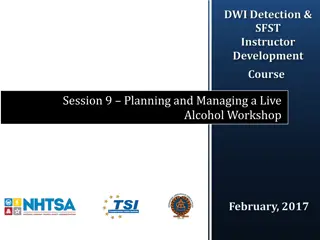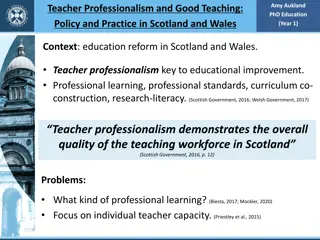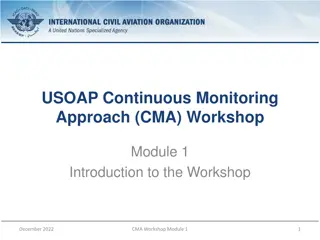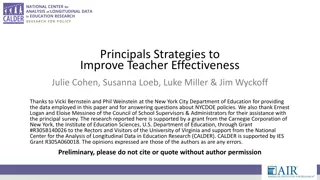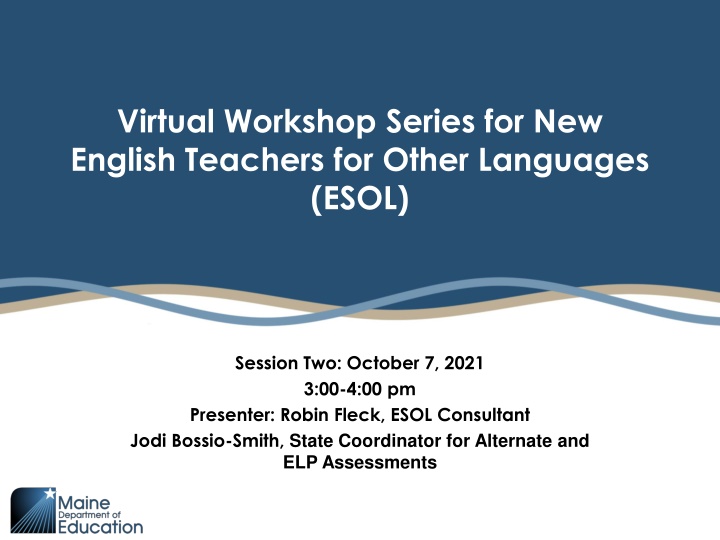
Virtual Workshop Series for New ESOL Teachers - Session Highlights & Insights
Join the Virtual Workshop Series for New English Teachers for Other Languages (ESOL) and gain valuable insights from Session Two, featuring presenters Robin Fleck and Jodi Bossio-Smith. Engage in community agreements, ice breaker activities, and discussions on language acquisition committees. Explore safe learning environments, extend activities, and support multilingual learners effectively.
Download Presentation

Please find below an Image/Link to download the presentation.
The content on the website is provided AS IS for your information and personal use only. It may not be sold, licensed, or shared on other websites without obtaining consent from the author. If you encounter any issues during the download, it is possible that the publisher has removed the file from their server.
You are allowed to download the files provided on this website for personal or commercial use, subject to the condition that they are used lawfully. All files are the property of their respective owners.
The content on the website is provided AS IS for your information and personal use only. It may not be sold, licensed, or shared on other websites without obtaining consent from the author.
E N D
Presentation Transcript
Virtual Workshop Series for New English Teachers for Other Languages (ESOL) Session Two: October 7, 2021 3:00-4:00 pm Presenter: Robin Fleck, ESOL Consultant Jodi Bossio-Smith, State Coordinator for Alternate and ELP Assessments
Community Agreements Remain muted when not speaking. Work to develop community by ensuring your name is properly displayed. (indicating your school district or organization is helpful) Ask questions, share resources, and contribute to the conversation through the chat. There will be time to respond to your questions and contributions at the end of the presentation. Respect diversity of opinion and perspective. Please be present and minimize distractions.
Ice Breaker Activity In a few moments we will go into breakout rooms. Each person in the group should show their breakout group their object that they have to share, and briefly (1-2 sentences) describe how that object represents something about themselves in some way. Examples: A person has an eraser in their hand, and shares that they love to write poetry. Another person has a silver button and shares that it comes from a sweater of their grandfather. Grandfather was a special person in their life. Someone has a piece of spaghetti and shares that their extended family meets once a month for spaghetti dinners. When it isn t your turn, please be an active listener. (5-6 minutes for this activity)
Reflection on Ice Breaker Activity Was this a safe activity for you considering that you probably didn t know the others in your group? Why or why not? (please respond in the chat) Think about ways that you could extend this activity. How would this activity work for Newcomers? Would you make any adaptations or provide scaffolding supports to multilingual learners with beginning and emerging English language skills?
Language Acquisition Committee (LAC) The Language Acquisition Committee (LAC), required by and described in each district s Lau Plan, is a school/and or district- based team responsible for guiding and monitoring the placement, services, and assessment of students who are English learners (ELs). The LAC may be comprised of: content-area or general education classroom teachers of ELs assessment specialists school administrators school counselors ESOL staff parents/guardians other members as appropriate (e.g., central office administrators, and school psychologists, person knowledgeable of native language/interpreter). If a student has identified special needs, then it is advisable to include the student s case manager or direct service provider.
Effective Uses Of LAC Meeting Determining initial student placement and educational programming ILAP Development Setting social, emotional, and instructional goals Monitoring student progress and challenges Determining if different educational services or programming are required, than the initial placement indicated Communicating with families and listening to the families sharing of their thoughts, concerns and celebrations
Managing Family Communications/Family Meetings It is imperative that you communicate with families in a language that they can understand. Help your staff to understand how to use an interpreter. See Tips for Working Effectively through an Interpreter in Schools. How confident are you with using an interpreter or interpreting service? In the chat respond: 0: not confident 1: I can do it, but wish I had more confidence. 2: confident
Communications (continued) Translation - written communication Interpreting services - oral communications Translator and Interpreter Resources The listing does not suggest Maine Department of Education endorsement of any service provider listed. Translation apps: Talking Points, WhatsApp District robocalls Does the robocall system have the capacity to translate messages? Example: school closings or delays Phone translation services It is recommended that districts have an account for unexpected needs.
Progress Monitoring your English Learners LEAs must monitor the progress of all ELs in achieving English language proficiency (ELP) and in acquiring content knowledge. English Learner Toolkit-Chap.8 Use the language goals in the ILAP and the Proficiency Level Descriptors for the 2020 WIDA ELD Standards Framework to develop your informal assessments. Progress should be reported at the same time as school progress reports occur. Using Informal Assessments for English Language Learners | Color n Colorado (colorincolorado.org)
ACCESS Assessments and English learners A Brief Overview Jodi Bossio-Smith, State Coordinator for Alternate and ELP Assessments Maine DOE
Welcome What are the ACCESS assessments and who are they for? Why do we administer ACCESS? Important Logistics Questions
ACCESS for ELLs and Alternate ACCESS for ELLs Summative assessment of English language proficiency [ELP] Includes the content areas of language arts, mathematics, social studies and science Includes both receptive and productive language domains Content Academic Language Proficiency [CALPs vs. BICs] Alternate ACCESS an alternate assessment for ELs with the most significant cognitive disabilities.
Why do we administer ACCESS? Federal accountability Summative purposes making decisions at the federal, state and local levels. Services, staffing, resources Individual student data opportunities to gain and document information about a student s proficiency level at that moment in time
ACCESS for ELLs and Alternate ACCESS for ELLs Assessment Window: 1/10/22 3/4/22 NEW for SY 21-22: The Maine DOE will coordinate the materials ordering process for all SAUs with enrolled English learners. Please remember that all students identified as English learners must be given an EL start date in Synergy coordinator with the SAU Data Specialist.
Contact Jodi Bossio-Smith State Coordinator for Alternate and ELP Assessments MSAA Math & ELA/Literacy, MSAA Science ACCESS & Alternate ACCESS for ELLs Jodi.bossio-smith@maine.gov 207.530.1462



